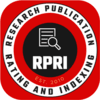Economic policy in an open economy
Keywords:
Globalization, Markets, Advantages, Transformation, Negative effectsAbstract
As Ambedkar said that the development of the mind should be the ultimate goal of the human race, the development of a country is the goal of the country’s progress, both internally and externally. No country can produce all the goods it needs by itself. They limit production capacity due to lack of capital, non-availability of manufacturing facilities, lack of technology, lack of investment, non-availability of manpower etc. They import the necessary goods from another country and export the goods produced in them to another country. Thus, a country’s economy opens up to the entire world and has economic relations with other countries of the world. In this, foreign investment into the home country and domestic investment into foreign countries. And free movement of technology is also allowed. This process has gained global importance in the late 21st century with the concept of globalization.
References
H.R.K. (2022). Contemporary Indian Economy. Sapna Book House. Bengaluru.
H.R.K. (2016). Advanced International Economics. Sapna Book House. Bengaluru.
Desai S. M. (1995). International Economics. Himalaya Publications House. Delhi.
Kumar Ratnesh. (2001). World Trade Origination. Deep and deep Publication Pvt, Ltd. Delhi.
Krishnayyagouda H. R. (2002). Advanced International Economics. Vidyanidi Publication. Gadag.









